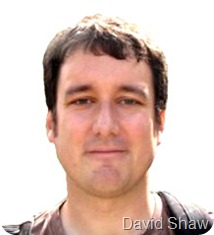Most donors die in intensive care units, frequently after car accidents. Once it is clear that recovery is out of the question, families will be told that further treatment is futile and the issue of donation can be sensitively raised. The manner of raising this issue will depend partly on whether the person was on the organ donor register.
Put simply, no-one benefits when organ donation is vetoed. The dead person’s last wish has been overridden, several people will die as a result because they will not receive the organs, and the family who vetoed donation will probably come to regret their decision quite quickly. It is unfortunate, but increasing families’ short-term stress is sometimes necessary in order to save lives.
Why do you think this is a better way of increasing organ donation than keep patients alive using elective ventilation?
The use of elective ventilation might increase the availability and viability of organs, but it would involve keeping patients alive beyond the point where they would normally be allowed to die, which the public might have difficulty accepting. Also, families might be more likely to veto donation if they are not happy that their dead relative has been electively ventilated.
Do families often refuse to donate a loved one’s organs?
It depends on the circumstances. One in 10 families veto donation even when their relative was on the donation register. In cases where the deceased was not on the register, families are asked to decide and the refusal rate is 3-4 times higher.
How frequently do families regret this veto? What lasting effect can this have?
The majority of families regret vetoing donation. There are two main lasting effects; first, they often feel guilty because they denied their dead relative’s clearly expressed wish and missed the opportunity for some good to come from their death. Second, they can also regret that their decision may have caused deaths or suffering for other patients.
What are the other impediments to increasing organ donation?
The main impediment is actually apathy, or laziness, because most people would be happy for their organs to be used but never get round to joining the register; only 29% of the population is on it. In this sense, a move to presumed consent, where organs are taken unless people specifically opt out, might be helpful. However, a presumed consent system would still not be optimal if families frequently vetoed donation.
How bad is the current shortage of organs? Does this vary for different organs?
More than 10000 people normally require a transplant in the UK at any one time. Of these, three die every day because organs cannot be found.
How important is timing in the decision over whether the doctors take the deceased organs or not?
It’s very important, for two reasons; first, organs only remain viable for a limited time after death. Second, the people who need the organs might themselves be close to death, so time can be of the utmost importance.
Is organ donation completely anonymous, or are the families of the organ donor able to receive information on who the organs helped?
It’s up to the donor and the recipient. Basic data can be shared if either party is willing.
Where can readers find more information?
They can find more information at:-
About David Shaw
 David Shaw is Honorary Lecturer at the University of Aberdeen and Senior Research Fellow at the University of Basel.
David Shaw is Honorary Lecturer at the University of Aberdeen and Senior Research Fellow at the University of Basel.
From 2007-2012 he was Lecturer in Ethics at the School of Medicine of the University of Glasgow and an associate of the Centre for Applied Ethics and Legal Philosophy.
His previous post was Research Fellow in Ethics, Philosophy and Public Affairs at the University of St Andrews, and he completed his DLett in Moral Philosophy and Bioethics at the University of Lausanne in Switzerland.
He is interested in all areas of bioethics, and has published articles on many topics, including euthanasia, embryo research, disability, consent, clinical risk, placebos, virtue ethics, professionalism, health inequalities, homeopathy and ‘topping up’ on the NHS.
He is also the author of the book Genetic Morality and has sat on several university and NHS research and clinical ethics committees.